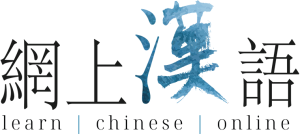Analysis of text n°2
Click to open.
Study the text and pay great attention to the explanations. Write down words and phrases that are new to you. Make a list in English and find the words / expressions in Chinese characters orally and then in writing (Chinese characters).
When you have mastered the new spoken and written vocabulary from English to Chinese, it is good to come back to the text to train the listening again: listen to the text as many times as necessary to understand it without error.
Same principle for writing: you must read the text, aloud ideally, understanding it without a hitch.
认识你很高兴
Rènshi nǐ hěn gāoxìng
Nice to meet you
我和钱明是在去中国的飞机上认识的,他和我坐在一起:
钱明:先生,你好,我叫钱明,很高兴认识你。
李亮:你好,我叫李亮,认识你很高兴。钱明?是几块钱的钱,明天的明吗?
钱明:是的,我是英国人,去北京学习中文,你呢?
Wǒ hé Qián Míng shì zài qù Zhōngguó de fēijī shàng rènshi de, tā hé wǒ zuò zài yīqǐ:
Qián Míng: Xiānsheng, nǐhǎo, wǒ jiào Qián Míng, hěn gāoxìng rènshi nǐ.
Lǐ Liàng: Nǐhǎo, wǒ jiào Lǐ Liàng, rènshi nǐ hěn gāoxìng. Qián Míng? Shì jǐ kuài qián de Qián, míngtiān de Míng ma?
Qián Míng: Shìde, wǒ shì Yīngguórén, qù Běijīng xuéxí zhōngwén, nǐ ne?
Qian Ming and I met on the plane to China. We were seated together:
Qian Ming: Hello sir, my name is Qian Ming, nice to meet you.
Li Liang: Hello, my name is Li Liang, nice to meet you. Qian Ming? It is the Qian (money) of "how much does it cost", and the Ming of "tomorrow"?
Qian Ming: That's right. I am English and I am going to Beijing to study Chinese. And you ?
- It may seem strange to meet 是在去 together. 是 is constructed with 的. Literally, we have to understand "Qian Ming and I, it was on the plane that was going to China that we met.
- 在 works with 飞机上 "on the plane".
- 去中国 determines 飞机 "the plane that goes to China".
- 钱明?是几块钱的钱,明天的明吗?: As there are many homophone Chinese characters, it is difficult to know verbally which Chinese characters composed the last name and first name. We then ask which word or phrase the character belongs to in order to identify it.
李亮:我是法国人,在北京工作好几年了,你是一名学生?
钱明:是的,我今年十九岁,是北京大学中文系的,我们做朋友,好吗?
李亮:好。我今年二十六岁了,你一个人来中国,没有爸爸妈妈在这里,不上学的时候,去我家吃饭。
钱明:太好了,谢谢你。
Lǐ liàng: Wǒ shì Fǎguórén, zài Běijīng gōngzuò hǎo jǐ nián le, nǐ shì yī míng xuéshēng?
Qián Míng: Shìde, wǒ jīnnián shí jiǔ suì, shì Běijīng dàxué zhōngwén xì de, wǒmen zuò péngyǒu, hǎo ma?
Lǐ Liàng: Hǎo. Wǒ jīnnián èr shí liù suì le, nǐ yī gè rén lái Zhōngguó, méiyǒu bàba māma zài zhèlǐ, bú shàngxué de shíhou, qù wǒjiā chīfàn.
Qián Míng: Tài hǎo le, xièxiè nǐ.
Li Liang: I am French and have worked in Beijing for several years. Are you a student ?
Qian Ming: Yes, I am 19 years old. I am in the Chinese language department at Beijing University. Let's become friends, okay?
Li Liang: Okay. I'm 26 years old. You came to China alone. Your parents are not here. When you don't have class, come and eat at my place.
Qian Ming: Great, thank you.
- 好 is used here as the adverb 很 "very". We cannot use 很 with 几 when this one means "several".
- 几 means "several" in an affirmative sentence and "how many?" in an interrogative sentence.
- 是北京大学中文系的 indicates that Qian Ming is part of the Chinese language department. Since he is a student, it means that he is studying in this department. There is a strong sense of belonging to a group in the Chinese language. As a Westerner, we would tend to say that "he studies in the department of Chinese studies", but Chinese people prefer the belonging construction.
- 我们做朋友,好吗? "Let's become friends, okay?" This is a very direct question for a Westerner, but it can be asked quickly in a first conversation in China. It happened to me several times to hear it after an exchange of three sentences maximum with strangers. The notion of friend is very social in China. Our Western concept of friendship which requires a longer relational development corresponds in China to the concept of family. Close friends will be called by family relations: "big brother", little sister ", etc.
